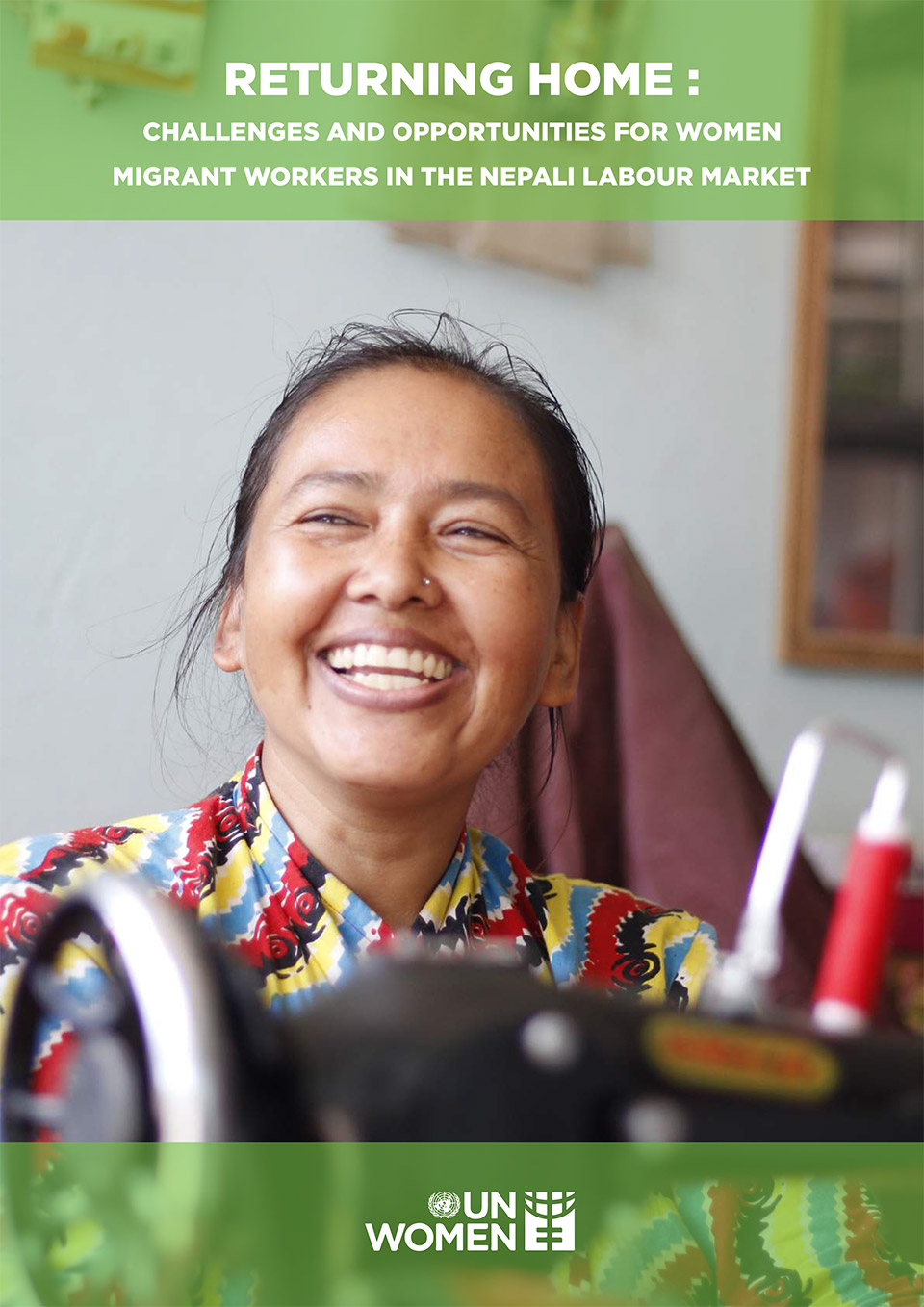
Returning Home: challenges and opportunities for women migrant workers in the Nepali labour market

The present study shows that while women largely migrate for economic reasons, they remain unable to improve their economic status upon return to Nepal due to traditional restrictions to their mobility and their disproportional share of household responsibilities. Furthermore, the participation of returnee migrant women workers in Nepal’s labour market is constrained by multiple work burdens created by the gendered division of household labour and care responsibilities.
The findings from this study and other global literature suggest that there are other less visible social and structural factors in the form of dominant discriminatory social norms that are persistent and that underlie the migration of Nepali women. These include the lack of substantive equality for girls during their formative ages, which limits their life chances, access to employment opportunities and ability to meaningfully compete in the labour market in later years. Likewise, experiences of women worldwide reflect the universal mindset that regards domestic work as essentially women’s duty, thereby adding work burden to women who seek options outside the home. Thus, for women and girls who long endure patriarchal discrimination, foreign labour migration comes as an opportunity to make a living without constraints of social norms, including risk to reputation, which is particularly true for single, widowed and divorced women. Thus, migration offers a chance for women to experience individual freedom and achievement as they are exposed to new places, cultures, societies and languages.
The challenges faced by Nepali women are reflective of the experiences of drudgeries and work burdens of working women worldwide. Addressing these challenges requires a stronger coordinated effort globally, among partners, practitioners, academia and governments, to go beyond policy change to enable communities and families to address deep-seated discriminatory social norms that stand in the way of women’s economic empowerment.